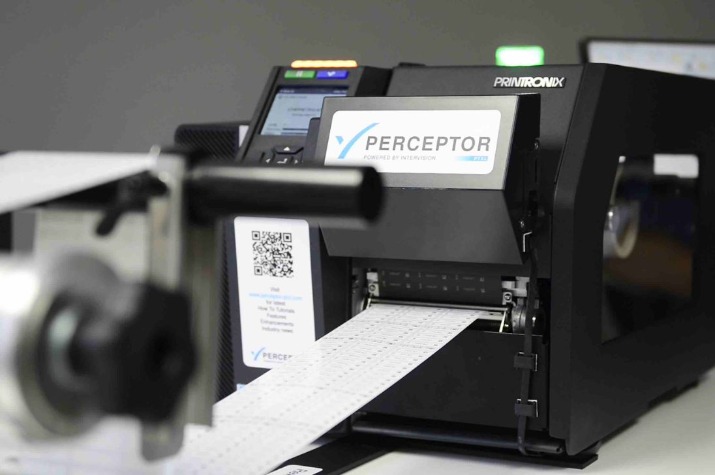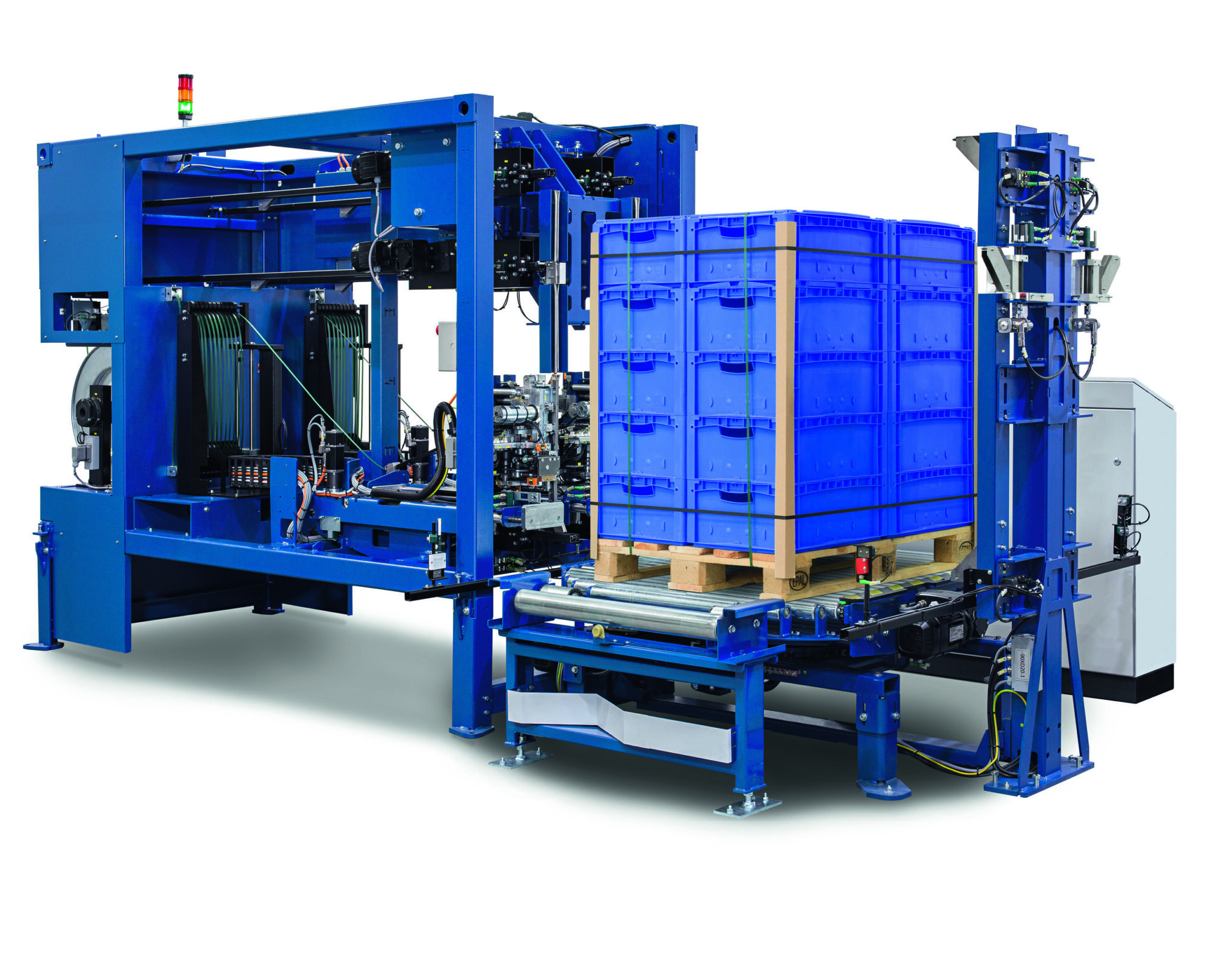With two-in-one functionality for pallet strapping, Mosca introduces the flexible, high-performance KZV-321 strapping machine. It easily adapts to a variety of product shapes and is ideal for logistics and transport of goods.
“The KZV-321 is the latest addition to our portfolio. It is an extremely adaptable high-performance strapping machine designed to secure goods for transport on pallets. This model makes it possible to strap single and double pallets at different heights with just one machine. Until now, this operation required two different machines,” explains Mosca CEO, Timo Mosca.
To combine the two applications, the KZV-321 is equipped with an open strap frame and six movable strap lances at three different heights. The machine automatically detects the height of a product as it enters the machine. The strap lances then close the frame at the appropriate height and the KVZ-321 securely straps the package.
Timo Mosca: “This new machine variant helps us support our customers by making their processes more efficient and reliable.”
The KZV-321 straps up to 130 single pallets or 65 double pallets per hour. The machine can be optionally equipped with an integrated turntable that enables it to efficiently secure two pallets for transport. The KZV-321 first straps each pallet separately to create a stable bundle.
A machine operator or automatic pallet doubler then stacks the two pallets on top of each other. This stack is fed into the KZV-321 again and, if necessary, realigned on the turntable. Finally, the machine’s strap lances pass through the planks in the base of the upper and lower pallets. This second strapping creates a stable bond between the stacked pallets.
“By strapping the double pallet through the pallet bases, the KZV-321 introduces a completely new process to the market that automatically and efficiently creates a stable unit,” explains Christian Zwieb, Sales Manager at Mosca Engineering. The straps are threaded through the planks in the pallet base and therefore do not touch the products. This allows maximum strap tension without damaging the product.
“The strapping simply attaches the top and bottom pallets and does not need to be placed around the entire stack. This ensures maximum stability, saves consumables, lowers costs and helps protect the environment,” adds Christian Zwieb.The two-stage securing process also makes it easier to split double pallets again without affecting the bond between pallet and product. The straps are removed quickly and easily without leaving any residue.
To ensure optimum machine availability and energy efficiency, the KZV-321 is equipped with the Mosca SoniXs ultrasonic sealing unit that has been tried and tested in high-performance machine operations. This unit does not require warm-up and efficiently seals strap ends with minimal wear.
To simplify maintenance and service, the two sealing units are located on the side of the machine and close to the floor. The KZV-321 is more compact and lower than previous KZV versions. “This machine requires less space, is easily accessible for operators and easy to maintain,” says Christian Zwieb.
The modular design of the KZV-321 also allows users to choose individual strap spacings. The standard is currently 480 millimetres. “Depending on the type and composition of the product to be strapped, we can adjust the strap spacing to customer specifications,” explains Christian Zwieb. The machine ensures safe transport of goods across all industries including intralogistics: for example, products packed in plastic containers or cartons, barrels or bags and stacked on pallets. This makes the KZV-321 a good choice for manufacturers from a wide range of industries, including food, chemicals, construction or agricultural products.
“No matter what type of packaging is used for goods stacked on pallets, the KZV-321 can be adapted to a wide range of dimensions and formats to optimally secure products for road, sea or air transport,” concludes Timo Mosca.






